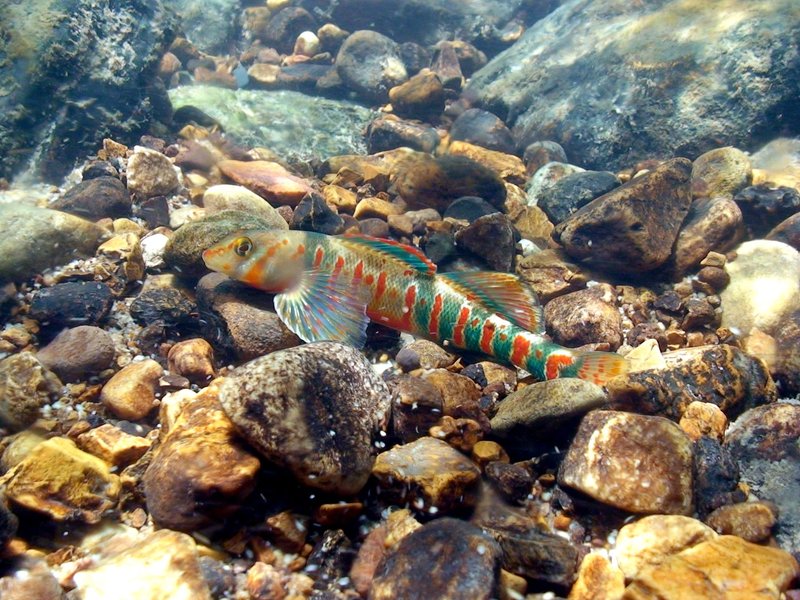For Immediate Release, October 2, 2025
|
Contact: |
Meg Townsend, Center for Biological Diversity, (971) 717-6409, [email protected] |
Endangered Fish Protected After Forest Service Pulls Harmful Coal Hauling Permit in West Virginia
CHARLESTON, W. Va.— A legal challenge to a coal hauling permit in the Monongahela National Forest came to a successful close today after the U.S. Forest Service terminated the permit in September and confirmed that all harmful coal hauling had ceased. The lawsuit was brought by the Center for Biological Diversity and conservation partners to protect endangered fish and other wildlife.
The coal hauling operations posed a significant threat to endangered candy darters and their critical habitat in West Virginia’s Cherry River watershed, an area also valued for natural beauty and recreational activities.
“I’m relieved that the Forest Service terminated this permit for harmful activities in one of the candy darter’s best remaining strongholds,” said Meg Townsend, senior freshwater attorney at the Center for Biological Diversity. “These beautiful fish desperately need clean water and intact stream habitats, so this result protects one of the most endangered animals in the country from coal hauling’s many risks. Endangered wildlife need to be safe from pollution in our national forests.”
The lawsuit, filed in January 2024, challenged the Forest Service’s failure to consider the harm that the activities authorized by the permit would have on the candy darter’s critical habitat.
The permit allowed a private coal company to haul oversized coal loads, coal mining supplies and equipment — including explosives — on gravel roads in the area. The coal hauling operations threatened to degrade water quality and reduced recreational opportunities for people. They also harmed other imperiled species in the area such as the northern long-eared bat, Indiana bat and hellbender salamanders.
“I’m thankful that any new permit will need to be reviewed with an eye toward protecting endangered species like the candy darter,” Townsend said. “The Cherry River watershed is one of West Virginia’s most special places. We have to take care of it to help this gorgeous little fish swim closer to recovery. We’ll continue to monitor the situation and advocate for the protection of the candy darter and other species endangered by coal mining activities in West Virginia.”
The Forest Service would need to undertake a full review under the Endangered Species Act and National Environmental Policy Act before any future permits to transport coal through the area could be issued. These reviews would assess whether new coal hauling activities could harm the candy darter and other endangered species that live in the area as well as the broader potential environmental harm.
The Center and Appalachian Mountain Advocates represented a coalition of groups in this case, including Appalachian Voices, West Virginia Highlands Conservancy, the West Virginia chapter of the Sierra Club, Kanawha Forest Coalition and the Greenbrier River Watershed Association.

The Center for Biological Diversity is a national, nonprofit conservation organization with more than 1.8 million members and online activists dedicated to the protection of endangered species and wild places.

